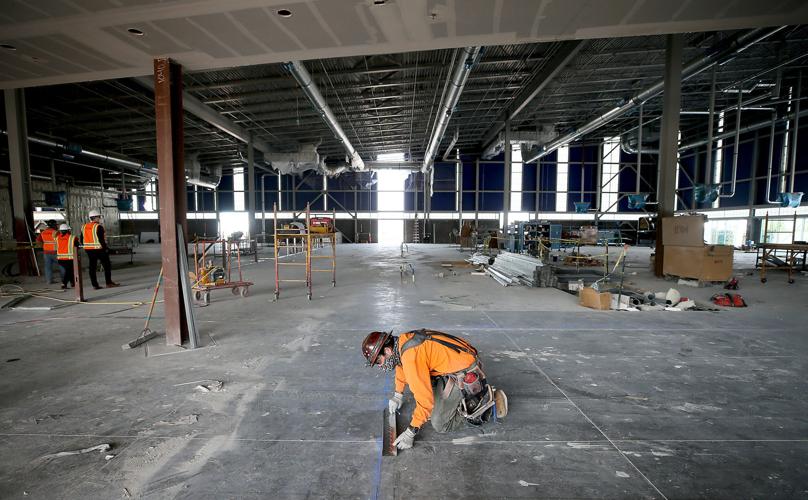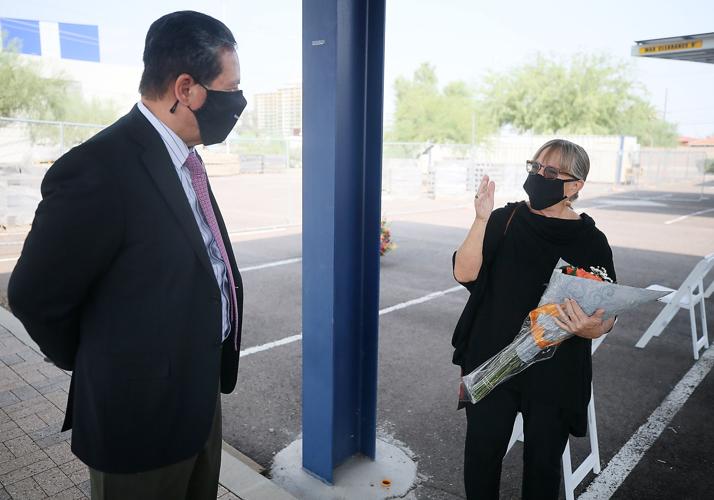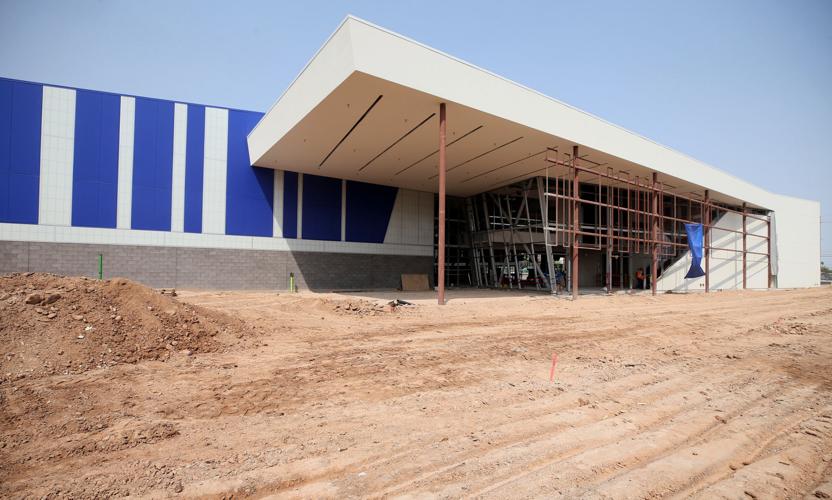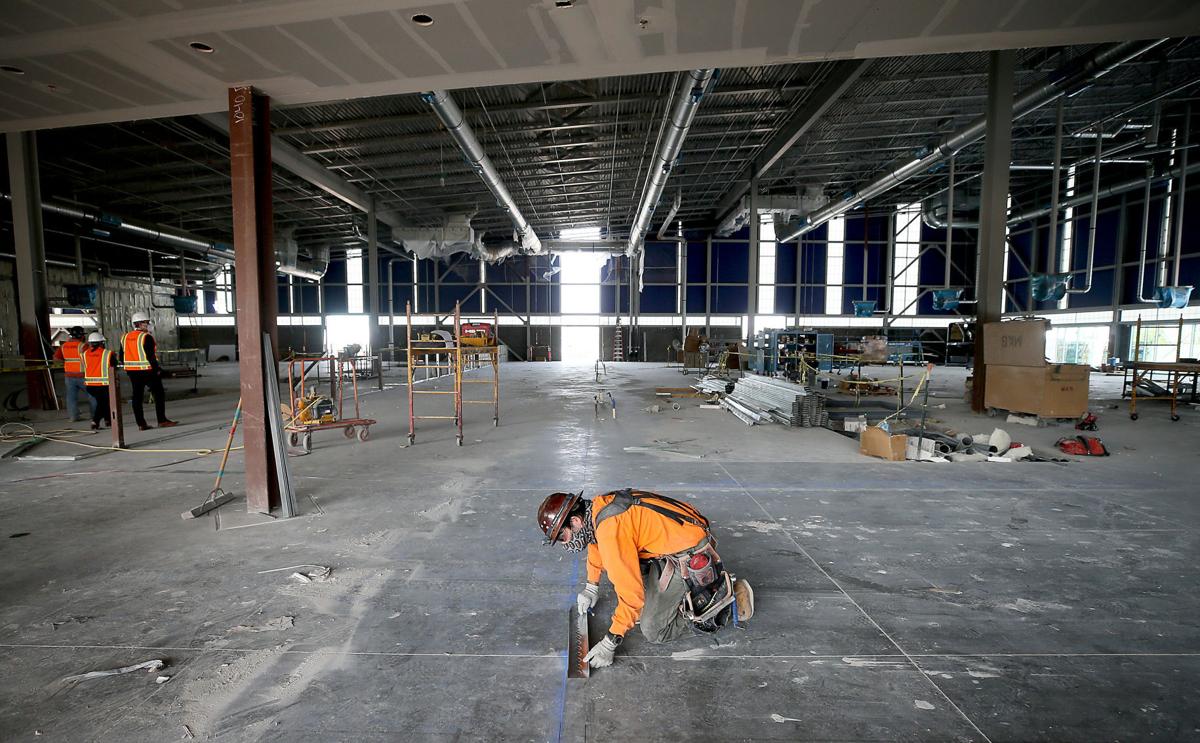Pima Community College is getting $2.5 million to help advance its emerging “centers of excellence” in technical education.
The grant is from the Thomas R. Brown Family Foundation.
Sarah Smallhouse, president of the foundation, said Pima’s focus on building tech centers of excellence, partnering with private employers and training high-tech workers, is what is needed to prepare local workers for the tech jobs of a future.
“We believe what Pima is undertaking today can be truly transformational in reaching those goals,” Smallhouse said at Pima’s nearly completed Automotive Technology and Innovation Center at the downtown campus.
Smallhouse cited the longstanding partnership the company her late father founded, Burr-Brown Corp., had with Pima College before it was acquired by Texas Instruments in 2000 for $7.6 billion.
“We must prepare our workforce to be competitive in the 21st century world, and we can only be successful if Pima is successful,” she said. “The people who graduate from their programs will be the people who make our world tick.”
Pima Chancellor Lee Lambert said employers want graduates trained in the latest technologies, but that is expensive.
“We cannot build the same classrooms and train on the same equipment we did 10 and 20 years ago,” he said, adding that Pima must rely on public-private partnerships with employers, philanthropic organizations and continued state and local support.
The auto tech center is expected to open in early 2021. Breaking ground on a state-of-the-art Advanced Manufacturing Center on the campus is scheduled for later in 2021.

Sarah Smallhouse, right, president of the Thomas R. Brown Family Foundation, with Pima Community College Chancellor Lee Lambert after announcing the foundation’s $2.5 million gift to the school.
Pima also is expanding its Aviation Technology Center at the Tucson International Airport, with $15 million in state funding.
Greg Wilson, dean of applied technology at Pima, said the Brown Foundation’s gift will help the college buy critical training equipment, including components of “cyber-physical systems” that incorporate computing, networking and sensor and data analysis equipment, which are used in smart grid, autonomous automobile systems, medical monitoring, industrial control systems, robotic systems and automatic pilot avionics.
The grant also will allow for expansion of training partnerships with Caterpillar, TuSimple, automotive dealers and others.
The funding also will help Pima create two new programs: an Additive Manufacturing program focused on 3-D printing; and a flight, maintenance and repair program for unmanned aircraft.

Construction continues on the new Pima Community College Automative Technology Center on September 9, 2020. The center is the first building in the Center of Excellence in Applied Technology.







